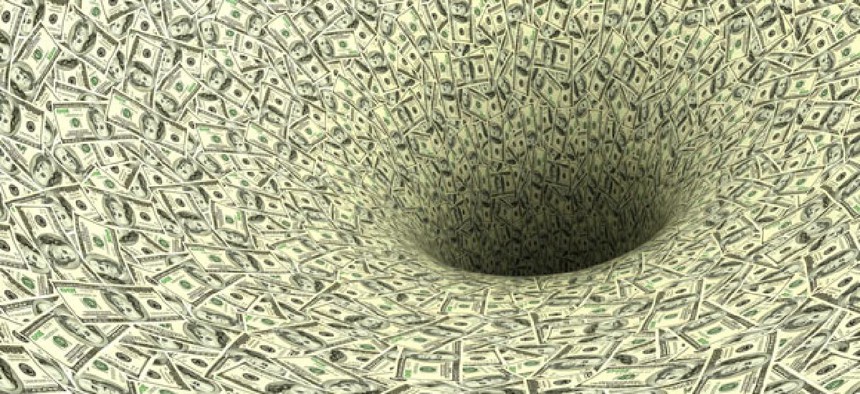
Thinkstock
Budget office warns of recession if Congress allows country to go over fiscal cliff
Latest Congressional Budget Office forecast paints dire picture.
The drumbeat about the magnitude of the end-the-year tax and spending decisions continued Wednesday, as the Congressional Budget Office released its updated economic and budget forecast for the next 10 years.
Much of the country’s economic future now hangs on the choices the lawmakers will make in the six weeks following the election, when the Bush-era tax cuts and the payroll tax holiday are set to expire; the across-the-board spending cuts to defense and nondefense programs are scheduled to take effect; and the length of time under which people can collect emergency unemployment benefits will decrease.
This would shrink the deficit to an estimated $641 billion in fiscal year 2013, from its current estimate for fiscal year 2012 of $1.1 trillion. That’s roughly a $500 billion reduction in the deficit, the magnitude of which has not been seen since 1969.
But, this same fiscal contraction would also lead to a recession, according to the CBO, with unemployment rising to roughly 9 percent by the end of 2013. The CBO now projects that the underlying strength of the economy is slightly weaker than it previously estimated, and with such modest economic growth, it would take little to push the U.S. back into an economic downturn.
The alternative, of course, is for lawmakers to extend these tax and spending policies for some period of time, adding to the deficit but maintaining the slow, steady pace of the economy. Under this scenario, the deficit for 2013 would clock in at over $1 trillion and revenues would be 16.3 percent of GDP. Unemployment would hover just above 8 percent. The only problem? Debt held by the public would climb to 90 percent of GDP by 2022. The country has not seen that scope of debt, says the CBO, since the time period just after World War II.
NEXT STORY: ‘First dog’ Bo now on diet






